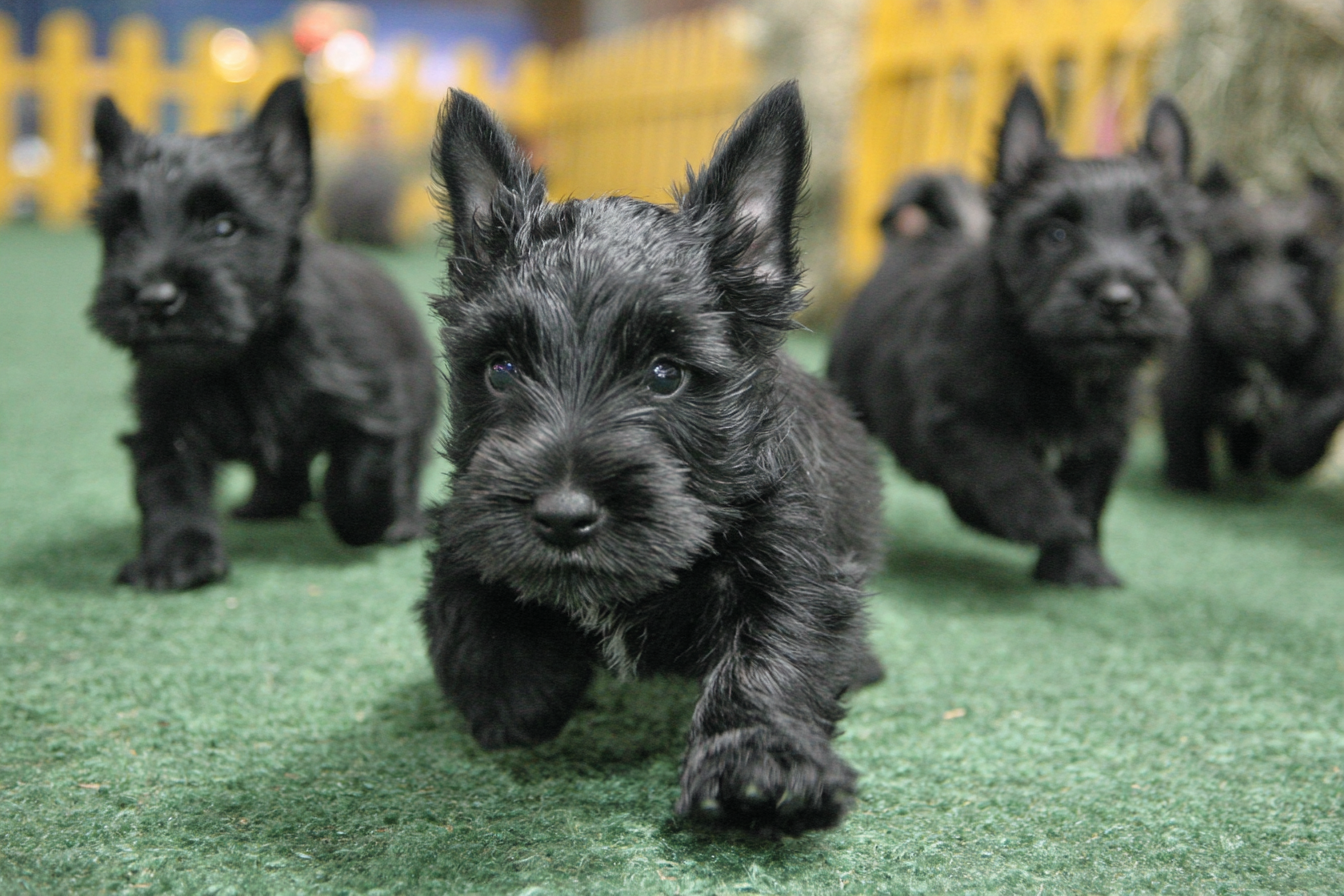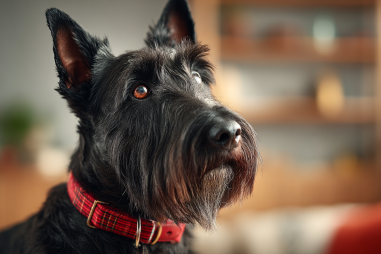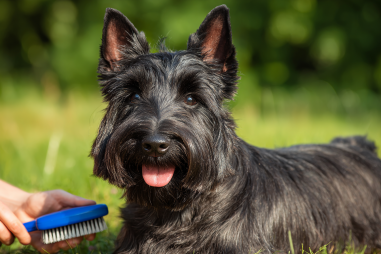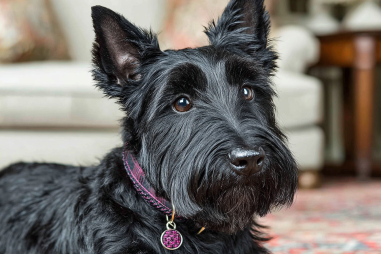Welcoming a Scottish Terrier puppy into your home is an exciting experience filled with joy and the promise of many memorable moments. As you begin this journey together, one of the most important foundations you can lay is proper socialization. Socialization is the process of exposing your Scottie puppy to a variety of experiences, people, animals, sights, and sounds in a positive and controlled manner. This effort helps your puppy grow into a confident, well-mannered adult dog who can comfortably navigate the world around them. Understanding the significance of socialization and knowing how to approach it correctly will set your Scottish Terrier up for a happy and healthy life.
Understanding Critical Periods for Puppy Socialization
Puppies go through specific developmental stages when socialization has the most profound impact. For Scottish Terrier puppies, the window for optimal socialization generally falls between 3 and 14 weeks of age. During this critical period, puppies are naturally curious and more open to new experiences, making it easier for them to form positive associations and adjust to new environments.
Failing to provide adequate socialization during this period can lead to fearfulness or aggression later in life. It’s important to start early, but also to proceed at a pace your puppy is comfortable with, ensuring each new experience is pleasant and non-threatening.
Safe Exposure to New People, Pets, and Places
Socializing your Scottish Terrier means introducing them to a wide variety of stimuli in a controlled and supportive way. This includes:
- New People: Invite friends, family members, and neighbors of varying ages and appearances to meet your puppy. Gently encourage interaction, allowing the puppy to approach and retreat as they feel comfortable.
- Other Animals: Carefully expose your Scottie to well-behaved dogs, cats, and other animals. It’s essential that these encounters are supervised and always calm to build positive experiences rather than fear.
- Different Environments: Take your puppy to parks, pet-friendly stores, and quiet busy streets to familiarize them with various sights, sounds (traffic, children playing), and smells. Gradually increase the level of distraction as your puppy grows more confident.
- Objects and Situations: Introduce household items like vacuum cleaners, umbrellas, hats, and loud noises like doorbells or sirens to help your Scottish Terrier build resilience and adaptability.
Remember, safety is paramount during all socialization activities—your actions should ensure your puppy feels secure and can explore without feeling overwhelmed.
Positive Reinforcement and Encouragement
Using positive reinforcement is one of the most effective tools when socializing your Scottish Terrier puppy. Rewarding calm and confident behavior with treats, praise, and affection encourages your Scottie to repeat those behaviors. This can mean offering a tasty treat when your puppy meets a new person without retreating or providing enthusiastic praise when they explore a new environment bravely.
Consistency and patience are key. Not every encounter will go perfectly, but remaining calm and reassuring will communicate to your pup that new experiences are something to enjoy rather than fear. Over time, these positive associations create a strong foundation of confidence.
Dealing with Fear or Shyness Early
Despite careful socialization, some Scottish Terrier puppies may show signs of fear or shyness. Early attention to these behaviors is crucial to prevent them from becoming entrenched as long-term issues. If your puppy hesitates or freezes in new situations:
- Do not force interaction. Allow your pup to approach at their own pace.
- Use gentle encouragement and rewards for any signs of curiosity or bravery.
- Gradually increase exposure levels—start with milder situations and slowly build up to more challenging ones.
- Consider enlisting the help of a professional dog trainer or behaviorist experienced with terrier breeds if your puppy’s fears are particularly intense.
Early intervention and positive experiences can reshape your puppy’s outlook and help them grow into a sociable adult dog.
Socialization Mistakes to Avoid
While socializing your Scottish Terrier puppy, certain common mistakes can hinder progress or even worsen fears and behavioral issues. It’s best to avoid:
- Overwhelming Your Puppy: Bombarding your Scottie with too many new experiences at once can cause anxiety and withdrawal.
- Negative Experiences: Forcing a puppy into frightening situations or using punishment can create negative associations and mistrust.
- Ignoring Fear Signs: Not recognizing when your pup is stressed or uncomfortable can exacerbate problems.
- Delaying Socialization: Waiting too long puts your puppy at risk for developing social fears or aggression that are harder to correct later.
By focusing on gradual, positive exposure and respecting your puppy’s limits, you can avoid these pitfalls and help your Scottie thrive.
Tools and Resources for Puppy Socialization
Several tools and resources can assist you in socializing your Scottish Terrier puppy effectively:
- Puppy Socialization Classes: Many communities offer classes where puppies can meet other dogs and people in a controlled environment under professional supervision.
- Training Clickers and Treats: These tools are excellent for marking good behavior and reinforcing positive experiences quickly.
- Books and Online Guides: Reputable dog trainers and veterinary behaviorists provide detailed guidance on socialization techniques and troubleshooting challenges.
- Professional Trainers and Behaviorists: If you encounter difficulties, experts can tailor a socialization program specific to your Scottie’s personality and needs.
Accessing these resources can enhance your confidence and success during this important phase of your puppy’s development.
Setting the Stage for a Confident Scottish Terrier
Proper socialization is one of the greatest gifts you can provide your Scottish Terrier puppy. By carefully and kindly introducing them to people, animals, and new environments, you nurture a foundation of confidence and trust. With patience, positivity, and consistency, your Scottie will grow into a friendly, adaptable companion who embraces the world around them with curiosity instead of fear.
Remember, socialization isn’t a one-time event but a lifelong process of learning and reassurance. Starting early during your puppy’s critical development stages and maintaining good social habits throughout their life will help secure the joyful bond and well-behaved nature that every Scottish Terrier owner cherishes.







